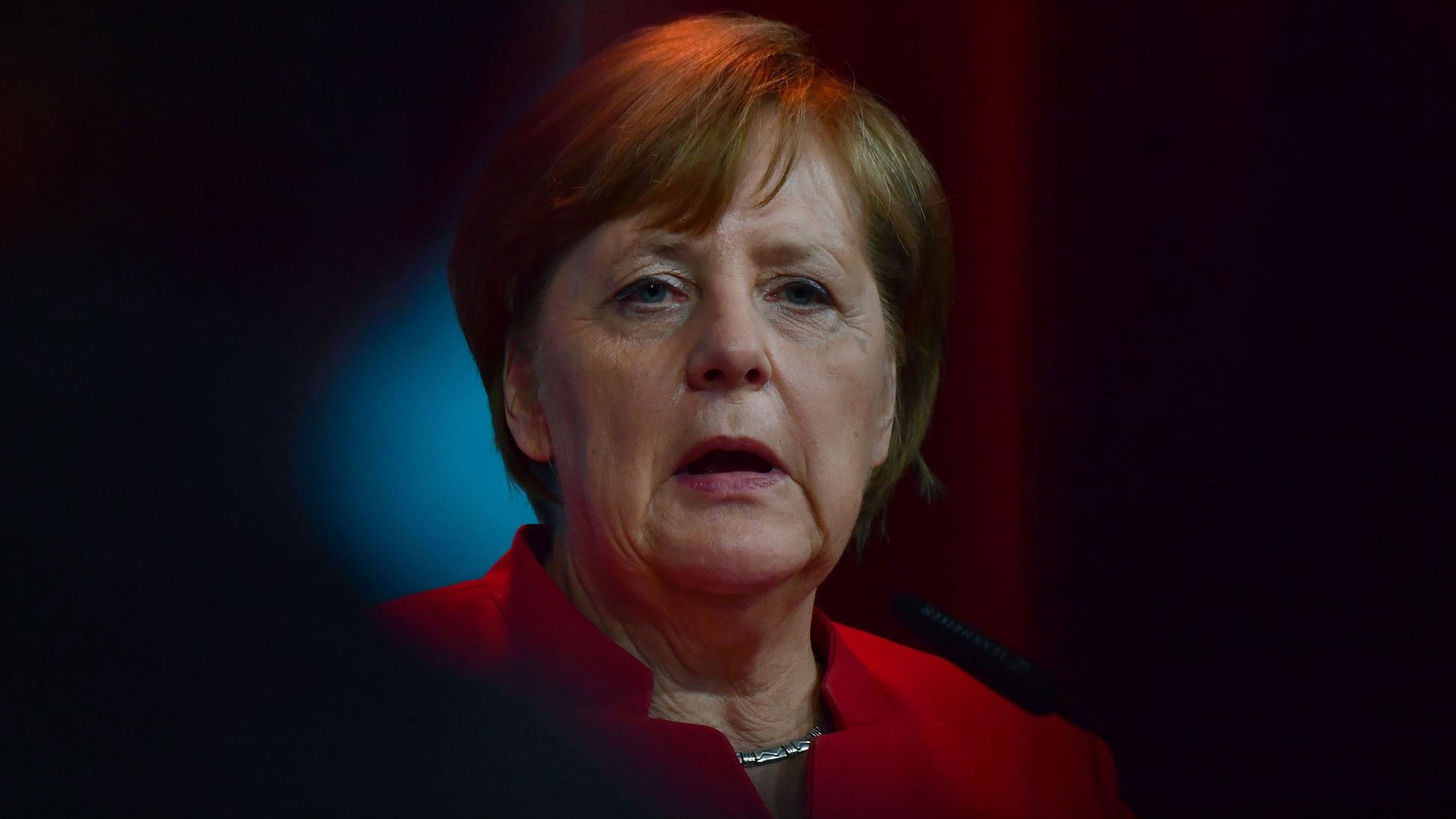
Editor's note: Daniel Quirk is a Yenching Scholar at the Yenching Academy of Peking University. His research focuses on the China-EU-UK trilateral relationship and its consequences for business. The article reflects the author's opinions, and not necessarily the views of CGTN.
Since becoming German chancellor in 2005, Angela Merkel has been a central figure not only in German politics but in European Union (EU) decision-making too. Her long tenure as chancellor has seen her face multiple challenges, from the financial crash and euro crisis to Brexit and migration. Her hard negotiation style and ability to develop solutions has also won her the respect of many, but has also made her a controversial figure to others.
With the long-term implications of COVID-19 becoming more evident and recovery proposals dividing EU member states, Merkel faces her greatest challenge of saving Europe once again just as she prepares to retire next year.
In recent weeks, Merkel has abandoned some of her own political and economic principles in an effort to move Germany and the EU towards a recovery plan. Now as Germany assumes one of the most important roles in the EU, Merkel may be able to guide Europe through yet another crisis.
From the July 1, Germany will be responsible for the six-month rotating presidency of the European Council, an important role for member states and their national leaders to demonstrate their political capabilities. Not only does the presidency member state host meetings between leaders at various levels of the EU Council but it is also expected to set the agenda, guide debates and help the EU27 form consensus on a range of issues.
Few will doubt that Merkel has already demonstrated these aptitudes without this role, however the presidency creates even greater potential for Germany to shape European discussions towards Merkel's preferable positions. Whilse Merkel will still step down in 2021, her intention is to leave Germany and the EU in better positions than when she became chancellor and to do so by setting the EU in a direction necessary for its survival.
The most immediate challenge to Germany and EU integrity is the COVID-19 pandemic, which pushed EU members to unilaterally close internal borders against the principles of freedom of movement. Despite an initially slow response, Merkel is working with other European leaders to mobilize a united solution to the immediate and long-term challenges posed by the virus.
The "Next Generation EU" recovery plan of 841 billion U.S. dollars offers to reinforce the next EU budget by providing investment aid to assist recoveries. Southern member states have welcomed the Merkel-Emmanuel Macron initiative, however Sweden, the Netherlands, Denmark and Austria have opposed the current plans due to concerns on debt mutualization and using grants rather than loans.

A shopping street in Gelsenkirchen, Germany, Monday, 20 April. /AP
A shopping street in Gelsenkirchen, Germany, Monday, 20 April. /AP
As the presidency holder, Germany will be well-placed to guide this process of building consensus and formulating an EU-wide response to the post-pandemic recovery.
China will also feature prominently in Germany's presidency. Commentators are divided on whether the EU currently lacks a consistent policy on its relationship with China. This emerges from the fact that China-EU relations cover a range of complex issue areas with varying degrees of agreement, thus making a single EU approach towards China difficult but not impossible.
A high-level summit planned for September which was supposed to demonstrate progress in the China-EU relationship and downplay these criticisms has now been cancelled.
Merkel is aware of the contrasting values that China and Europe have on several issues, however as a pragmatist she has recognized that engagement with China remains in both Germany's and Europe's interests. Merkel's desire is for Europe to emerge above China-U.S. competition rather than become embroiled between both sides within the trade war.
This will necessitate a more robust yet adaptable China strategy at the EU level, which clearly recognizes areas of both cooperation and disagreement with China.
Two of Merkel's potential successors, Friedrich Merz and Norbert Röttgen, both advocate for a more critical approach towards China, which could reverse decades of German policy in maintaining amicable relations and economic ties.
Guiding a new approach towards China at the EU level will therefore be an urgent aim of the German presidency for Merkel in order to establish a pragmatic long-term strategy for China-EU relations which her successor must follow for years after her departure from politics.
The German presidency of the Council of the EU may be the most important rotating presidency for the EU in recent decades and will shape the future of Europe for years to come. It will also be a test for Merkel to revive the European project at a time when the continent has experienced years of economic and political turmoil.
Merkel's ability to safeguard the EU's future after COVID-19 is not only important for Germany and Europe but for wider global governance too and if achieved would secure her legacy as one of Europe's greatest leaders.
(If you want to contribute and have specific expertise, please contact us at opinions@cgtn.com.)